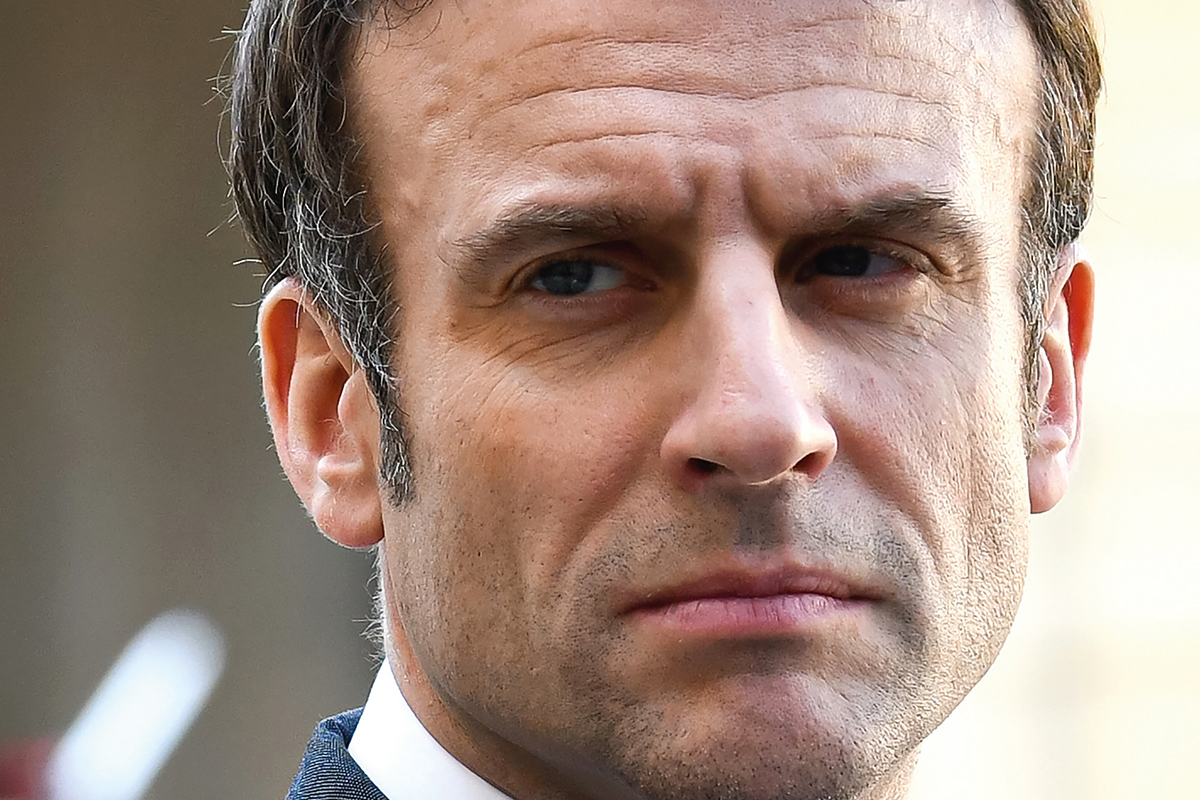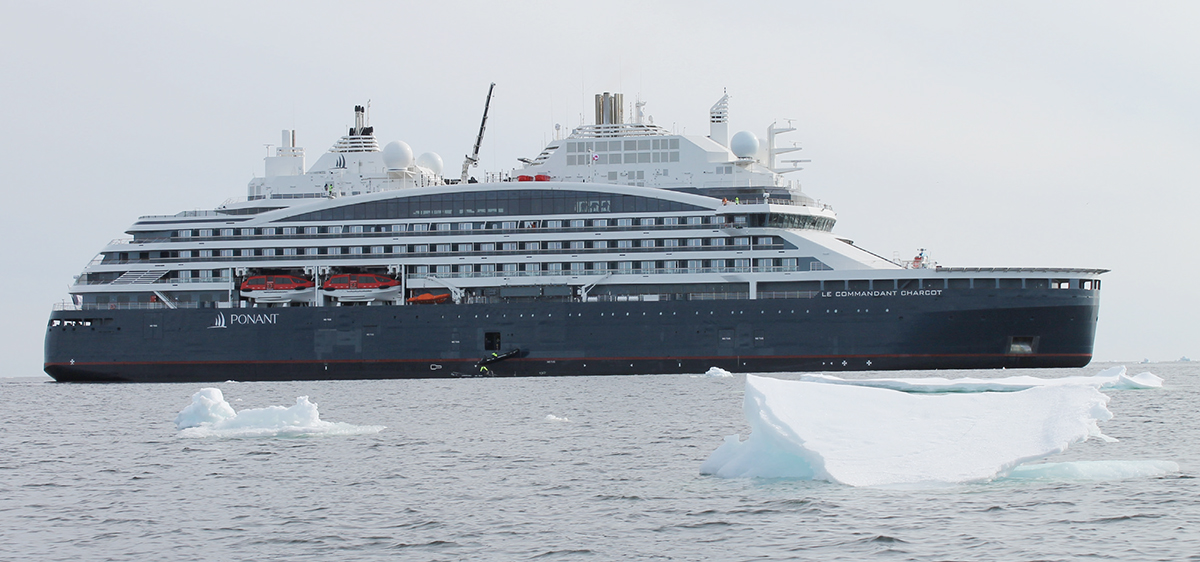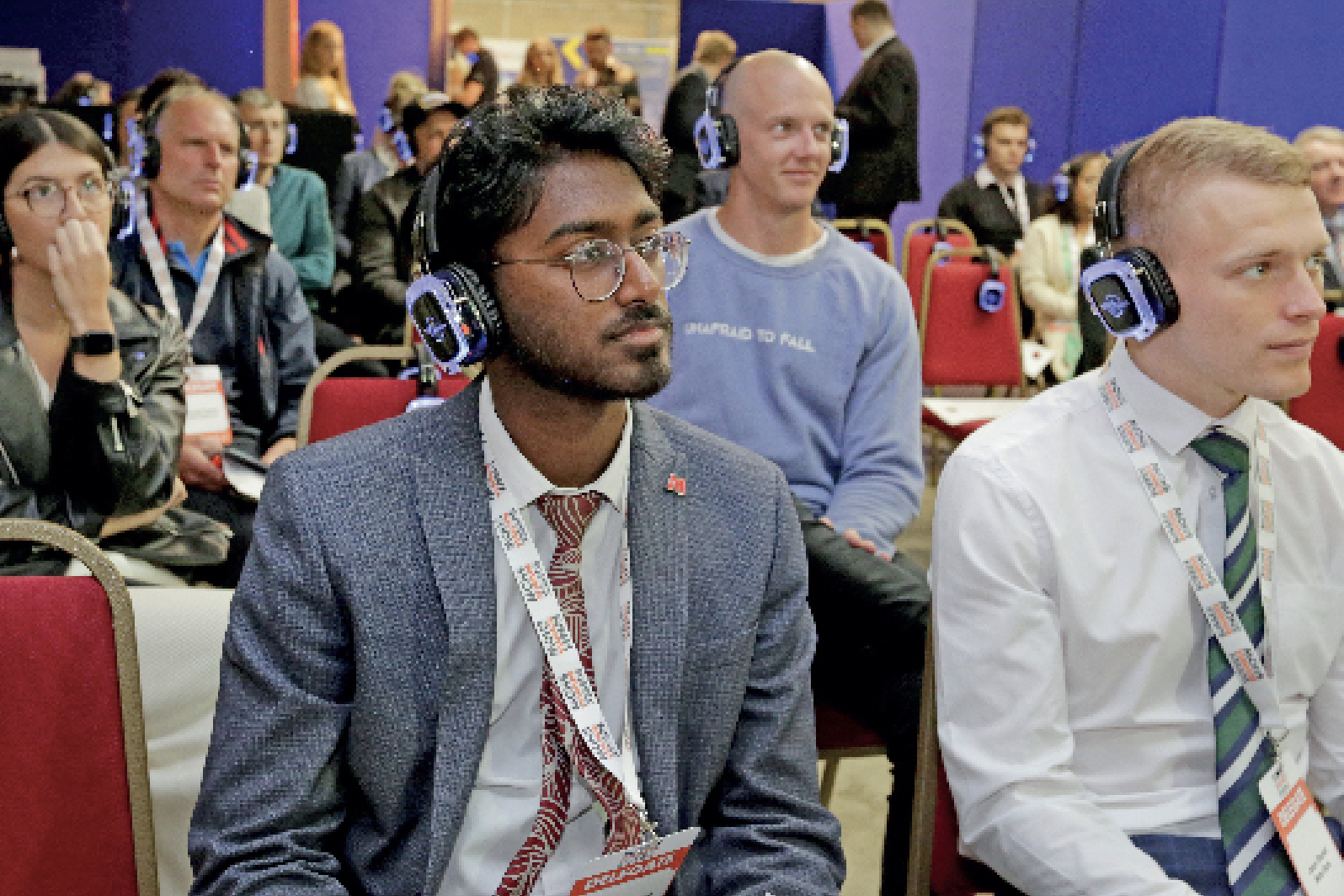
Emmanuel Macron won his second term as President of the Fifth French Republic in April 2022. The ‘La Republique en Marche!’ (LREM) party candidate defeated the Rassemblement National (RN - known until 2018 as the Fronte National, or FN) candidate, Marine Le Pen. By Alan Wares
This was the second time the pair had met in the final run-off, and the vote showed an 8% swing from the election 2017 towards Le Pen. This was less than expected by French political commentators, and nothing like enough for the swing to defeat Macron.
For a rough comparison, if French Presidential politics were to be transposed into the largely duopolised UK political arena, one supposes this was a run-off between the Liberal Democrat candidate and the (now defunct) British National Party. Though, like much of Macron’s political and personal life, these comparisons are nothing like as clear in reality.
FRANCE'S REPUBLICS
Since the French Revolution in the late 18th Century, France has operated under a number of ‘Republics’. These are, in turn, effectively a new form of government which takes into account the roles of the distinct separate seats of power of the legislature, the executive and the judiciary.
The French constitution provides for a separation and proclaims France’s attachment to the ‘Rights of Man’ and the principles of national sovereignty as defined by the Declaration of 1789.
France’s current Republic - its fifth - was established on October 4th, 1958, following the collapse of the Fourth Republic. The trigger had been the Algerian crisis of 1958, where France, still a colonial power, was in conflict with Algerian separatists who wanted independence.
The Fourth Republic, set up in 1946 - immediately after the Second World War - was suffering from a lack of political consensus, a weak executive, and governments forming and falling in quick succession.
Charles De Gaulle, leader of Free France from 1940-44, proposed a system of presidents with more executive power, elected for seven-year terms. On June 1st, 1958, de Gaulle was appointed ‘Head of Government’, and through a referendum in September that year which achieved 80% agreement, he was able to get a new constitution agreed and signed into law, establishing the Fifth Republic.
It is now France’s third-longest-lasting political regime, after the Ancient Régime (late Middle Ages – 1792), and the parliamentary Third Republic, which lasted 70 years from 1870 onwards, and the most stable France has been for centuries.
Emmanuel Jean-Michel Frédéric Macron was born in Amiens, northern France on December 21st 1977. He studied philosophy at Paris Nanterre University, later completing a master’s degree in Public Affairs at the Paris Institute of Political Sciences, graduating from the École nationale d’administration in 2004.
He then worked as a senior civil servant at the Inspection générale des finances (the closest UK equivalent would probably be the Financial Conduct Authority). He also became an investment banker at Rothschild & Co.
He was appointed as a deputy secretary general by President François Hollande after his election victory in 2012, making Macron one of Hollande’s senior advisers. He joined the French cabinet in 2014 after his appointment as Minister of the Economy, Industry and Digital Affairs by Prime Minister Manuel Valls.
He resigned from the cabinet in August 2016, launching a campaign for the 2017 French presidential election. Although Macron had been a member of the Socialist Party from 2006 to 2009, he ran in the election under the banner of La Republique en Marche!’ (‘The Republic On The Move’, or ‘Republic Forward’), a centrist and pro-European political movement he had founded in April 2016.
Macron was elected eighth President of the Fifth French Republic on May 7th, 2017. Two months later, his LREM party won an overall majority in the legislative elections.
PERSONAL LIFE
For all his political machinations, it’s Macron’s private life that has raised most eyebrows, even with the otherwise liberal-minded social attitudes across France.
He is married to Brigitte Trogneux, 24 years his senior, and his former high school teacher in Amiens. They met during a theatre workshop that she was giving when he was a 15-year-old student and she was a 39-year-old teacher, though they say they only became a couple once he was 18.
She has three children from a previous marriage, while he has no children of his own. According to Brigitte’s youngest daughter, Tiphaine Auzière, the first time she fell for Macron, “they were quite smitten.”
Macron first declared his love for Brigitte when he was 16 years old, though his parents attempted to separate the couple by sending him away to Paris to finish the final year of his schooling, as they felt the relationship was inappropriate. They asked Brigitte to stop seeing him until he was 18 but she replied, “I can’t promise you anything.”
The couple reunited after Macron graduated, and were married in 2007. Brigitte’s role in Macron’s 2017 presidential campaign has been considered pivotal, with close Macron allies stating that she assisted Macron with developing skills such as public speaking.
Talking of their continued loyalty to one another, Auzière said: “If I have to give a vision of love, it’s Emmanuel and my mother. When they are together, it is almost as if the world doesn’t exist.”
FRANCE'S AGE OF CONSENT
The age of consent in France is 15, as specified by Article 227-25 of the Penal Code, and has been since 1945.
Article 227-27 (updated 2021) prohibits sexual relations with minors (aged 15-17) where they are committed by an ascendant or by any other person having a legal or factual authority over the victim; or where they are committed
by a person abusing the authority conferred by his or her functions.
This is very similar to UK law, with the exception that the age of consent in the UK is 16.
She added that the children suffered as little as possible when her parents divorced.
Discussing the age gap in her relationship, Brigitte Macron told Elle France: “There are times in your life where you need to make vital choices. And for me, that was it. So, what has been said over the 20 years, it’s insignificant. Of course, we have breakfast together, me and my wrinkles, him with his youth, but it’s like that. If I did not make that choice, I would have missed out on my life. I had a lot of happiness with my children and, at the same time, felt I had to live ‘this love’, as Prevert used to say, to be fully happy.”
EUROPEAN POLITICAL ARENA
France, along with Germany, is at the very epicentre of European politics. The economic, social and cultural treaties France signed up to as partner of closer integration immediate post-World War II even pre-date the Fifth Republic. While there are rumblings of a French exit from the EU – as there is to greater or lesser degree across all of Europe - France has too much committed to a united Europe than to wish to abandon their 70-year treaties with the rest of the continent.
The majority of the French population (61% in 2016) have a general dissatisfaction with the EU, but conversely have little appetite for leaving. The figure wishing to remain at that time was 57%. The figure has increased across the population, with more than 60% having no desire to leave. Commentators are pointing to the mess the UK has made of its exit strategy as one of the strongest reasons for France’s continued desire for membership.
It’s against this backdrop of those figures - ‘Frexit’ basically isn’t an issue - that Macron feels he can present a continuation of his centrist politics, being distinctly pro-European, calling for a new political organisation to unite democracies on the European continent, while putting notification on Ukraine that it would probably not be joining the EU for several decades yet. He called for more joined thinking on Europe’s future, citing the war in Ukraine showed the need for a “historic process of reflection”.
He proposed “a European political community … a new European organisation that would enable democratic European nations who adhere to our values to find a new space for political cooperation”, mentioning security, energy, transport, infrastructure investment and movement across borders, especially for young people, as issues that body would tackle.
Being part of this organisation would not exclude a country from joining the EU, and the organisation could include “those who have left”; a clear nod to his desire to have closer economic, political and even militaristic ties with the UK than at present.
Depending on your stance about closer or lesser integration with the EU, this sounds remarkably like a move towards a European superstate - a notion that certainly pre-dates Macron. Given that a lesser version of what he is calling for largely already exists, this comes across as something no country has ever really called for with any level of seriousness. With the backdrop of uncertainty across the continent, it’s also something that will take a huge amount of convincing for Macron to get his wish.
His desire for closer integration comes with one large caveat; Macron has expressed caution over Ukraine’s desire to join the EU. For a country to be allowed to join, aside from the years of negotiations over the economic, social and political integration, it requires the unanimous approval of the EU member states. Given Macron’s concerns on this matter, Ukraine may well be stuck in the Waiting Room for a while yet.
Despite - and more likely, because of - the war in Ukraine, Macron is in constant contact with the President of Russia. While the EU’s, USA’s and UK’s sanctions - along with the social, economic and cultural exorcism from around the world - are there to enhance Russia’s international isolation, Macron believes a continued dialogue with the President is vital to help stop any escalation of the conflict.
Macron’s concern over Ukraine’s membership of the EU (the USA has already knocked back its membership of NATO), combined with his conversations with the Russian President, are not policies shared by everyone across the continent. One UK commentator suggested it had an air of appeasement about it, but the reality is, total isolation and shutdown of Russia from international affairs runs the risk of causing more harm than good.
Only Ukraine could decide on negotiating conditions with Russia, Macron has said. And he warned against excessive punishment on Russia when the war is eventually over. “When peace returns to European soil, we will have to build new security balances and together we must never give into the temptation … or the desire for revenge, because we know how much that has ravished the road to peace in the past.”
History has already taught us that lesson.
For Ukraine’s part, President Wolodymyr Zelenskyy was asked about Macron’s recent comments, in which he suggested Europe must try to avoid humiliating Russia and its President.
“We want the Russian army to leave our land — we aren’t on Russian soil,” Zelenskyy replied. “We won’t help him save face by paying with our territory. That would be unjust. “Macron is looking in vain for a way out for Russia,” Zelenskyy said.
In response, an Elysée official rejected Zelenskyy’s allegations. “The president of the Republic has never discussed anything with the Russian President without the agreement of President Zelenskyy - and has never asked President Zelenskyy for any concession. He has always said that it was up to the Ukrainians to decide the terms of their negotiations with the Russians.”
Once this conflict is at a natural end, given what all participants are looking for, diplomacy will be delicate. Macron, having left the dialogue route open with Russia, may well have a role to play.
DOMESTIC POLITICAL ARENA
Now that Emmanuel Macron has successfully negotiated his second election as French President, he must turn to more immediate domestic election matters.
Close on the heels of April’s presidential vote, voters in France go back to the polls between June 12th and 19th to elect lawmakers to the National Assembly - the France equivalent of a UK General Election.
France’s legislative elections tend to be a case of ‘after the Lord Mayor’s show’ compared to the more glamorous Presidential race for the Élysée Palace, but with 577 seats to fill in the lower-house, the results are no less critical - to France, and to the President’s ability to enact his own policies.
In the 2017 legislative elections, Macron’s own ‘La Republique En Marche!’ Party managed to gain an overall majority in the lower house. Whether this can be retained remains to be seen, and is LREM’s main priority.
In the Presidential election, if no candidate receives more than 50% of the popular vote, the top two performing candidates face a winner-takes-all run-off. Macron’s battle against Marine Le Pen nearly didn’t happen as the left-wing candidate Jean-Luc Mélenchon of La France Insoumise (France Unbowed) party finished just 1.2% behind Le Pen in the first round of voting.
Now Mélenchon is gathering a coalition of left-leaning parties, buoyed by their Presidential results, to take on Macron’s LREM. Many political commentators in France believe this is where the main challenge will come from, though they do have a huge hill to climb in order to overtake Macron’s party.
A quick scout through President Macron’s policies mark him down as being on the centre-left slant of ‘liberal’; he is an advocate of public healthcare, a secularist, favours the free market (though with appropriate restraints), ardently pro-European, calls for the rapid increase of environmentally—beneficial policies, has an open-door policy to immigration, wishes to give more autonomy to schools and colleges. He also intends to restrict homeschooling (with medical exceptions) in order to address separatist Islamic indoctrination which he sees as being at odds with a secular France.
Whilst a centre line may be appealing to many in France, the far-left and far-right often manage to win enough seats to have their voices heard in the Bourbon Palace. Macron’s challenge is to repeat his victories from 2017 and be able to appoint a French Prime Minister of his own party (one of the President’s roles immediately post-election).
This is a task the incumbent rarely manages to repeat, with only Charles de Gaulle, François Mitterrand and Jacques Chirac before him managing to get re-elected in the Fifth Republic.





